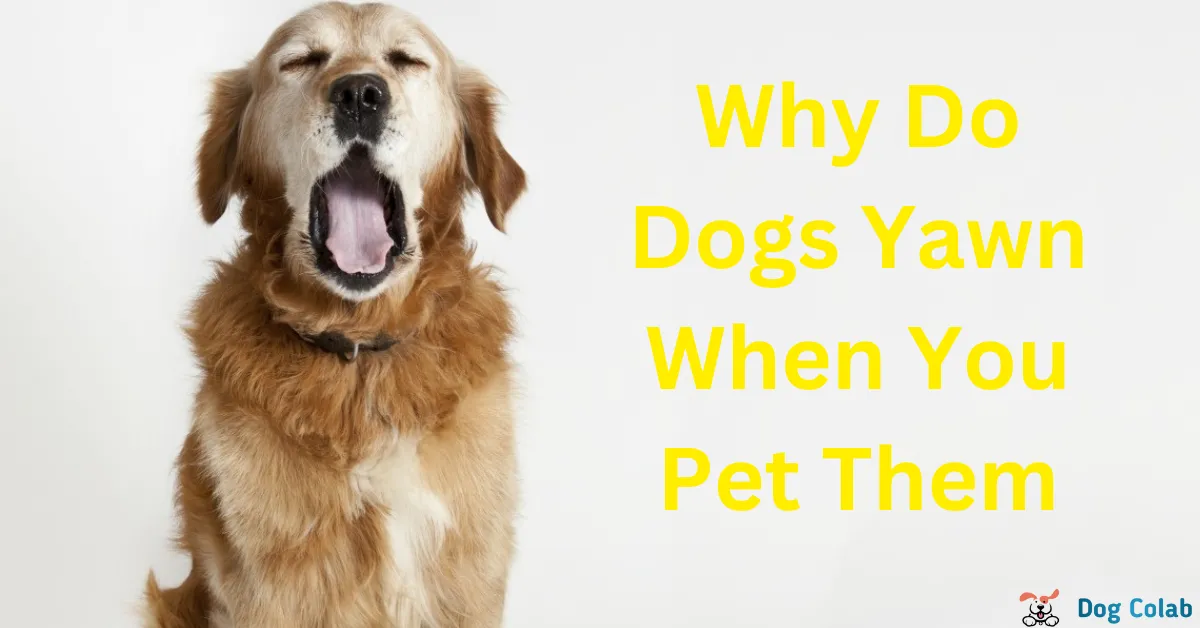If you’ve ever noticed your furry friend yawning while you’re petting them, you may have wondered why this happens. Yawning is a common behavior seen in both humans and animals, and it happens in humans due to many things like tiredness, boredom, and when you see someone else yawning. But in the case of dogs, yawning can be a little bit different or a combination of factors, like stress, excitement, boredom, and calming signals. So, In this blog post, in this blog post, we will look at the reasons why do dogs yawn when you pet them and what to do if a dog yawn so much.
What Is Dog Yawn?
Yawning in dogs is an instinctive reflex, similar to humans. It involves the opening of the mouth wide and inhaling a deep breath.
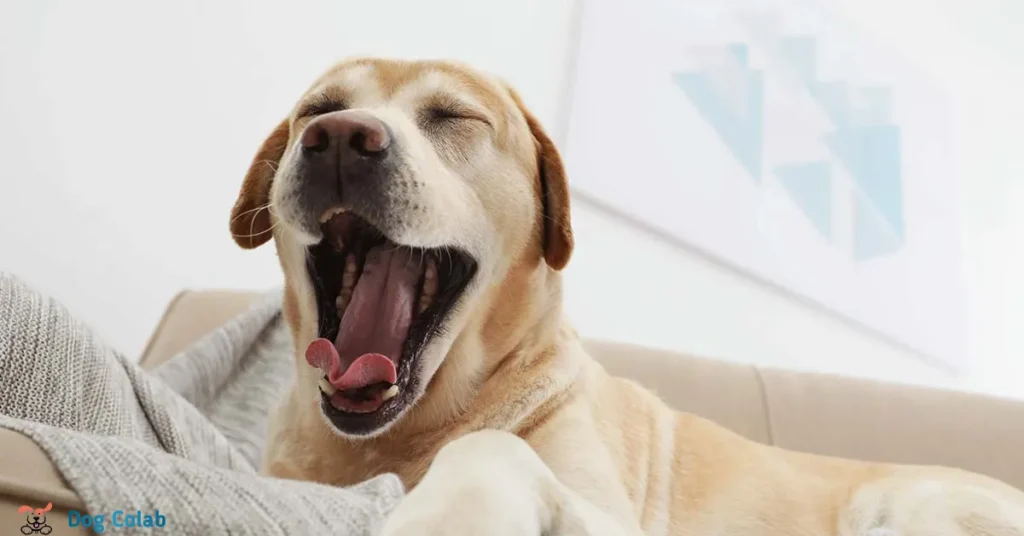
This process is shared by various other animals, serving as a common physiological phenomenon.
Why Do Dogs Yawn When You Pet Them? (Reasons)
When dogs yawn in response to being petted, there can be several reasons behind this behavior. Here are some possible reasons.
- Stress
- Tiredness
- Excitement
- Calming Signals
- Confused
- Contagious
- Medical Condition
1. Stress
Yawning may be a signal of stress in dogs. Some dogs feel anxious or overwhelmed when they are being petted, especially if they are in unfamiliar surroundings or around new people. Yawning can be a way for them to release tension and cope with the stress they are experiencing.
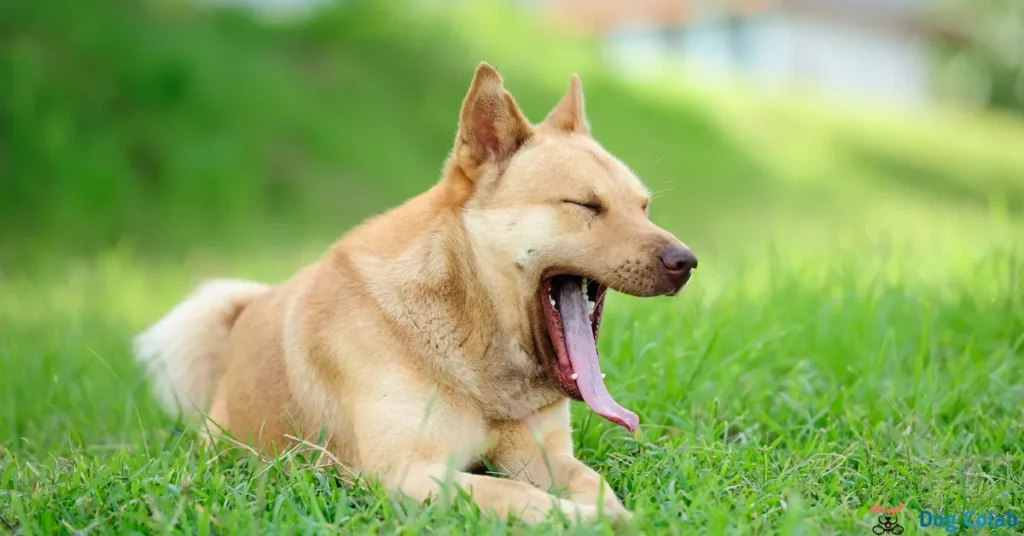
2. Tiredness
Yawning is commonly associated with tiredness or drowsiness in dogs, just as it is in humans. If a dog is feeling sleepy or fatigued, it yawns in response to being petted simply because they are in a relaxed state.
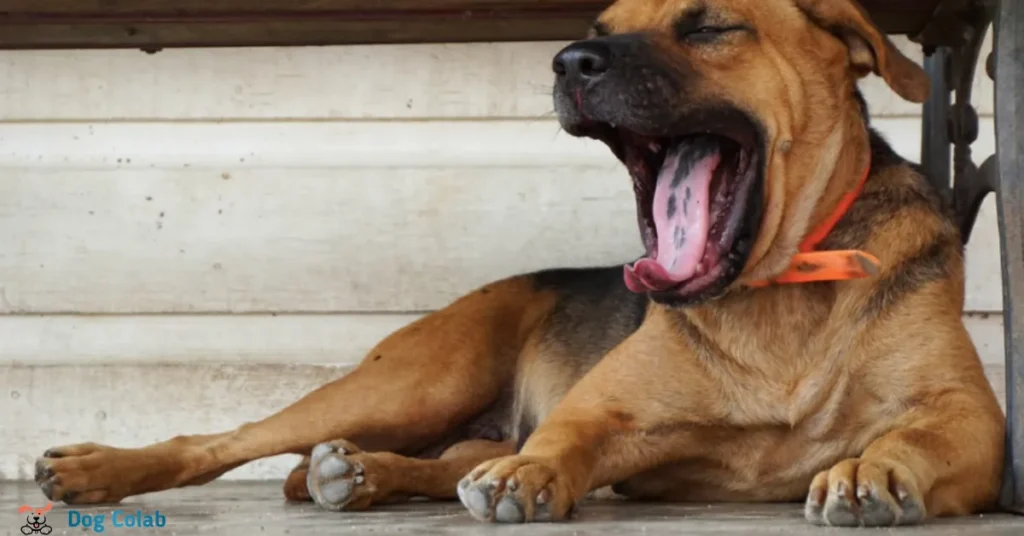
3. Excitement
Dogs often get excited when they receive attention or affection from their owners or other people. Yawning in this context can be a way for them to regulate their arousal levels. It’s not uncommon for dogs to yawn when they are overly excited or stimulated, as yawning helps them calm down and bring their energy levels under control.
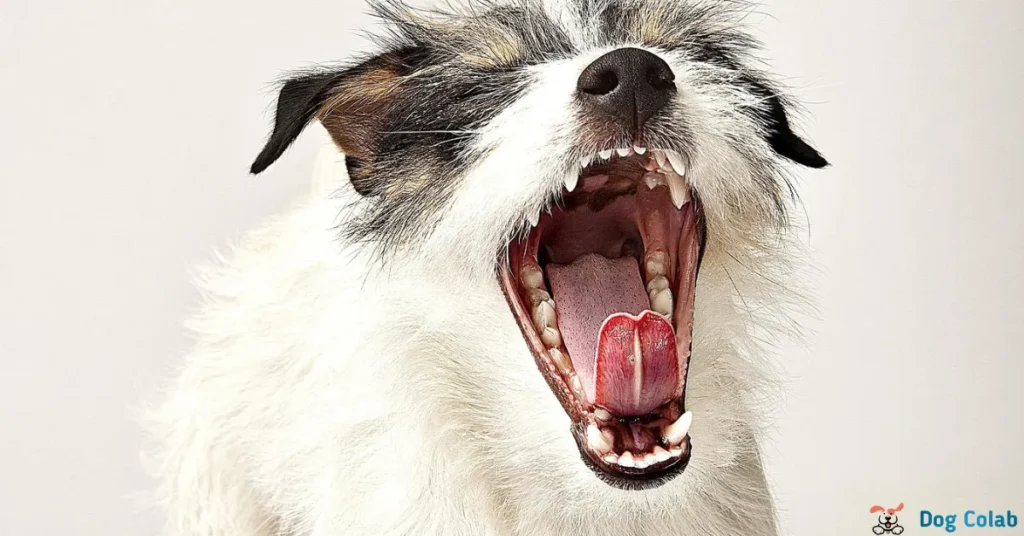
4. Calming Signals
One possible reason why do dogs yawn when you pet them is calming signals. Yawning is one of the many calming signals dogs use to communicate their intentions and emotions. When dogs are being petted, they yawn to signal that they are trying to relax or diffuse any potential tension. It can be their way of indicating that they are comfortable with the interaction but also want to maintain a calm and peaceful state.
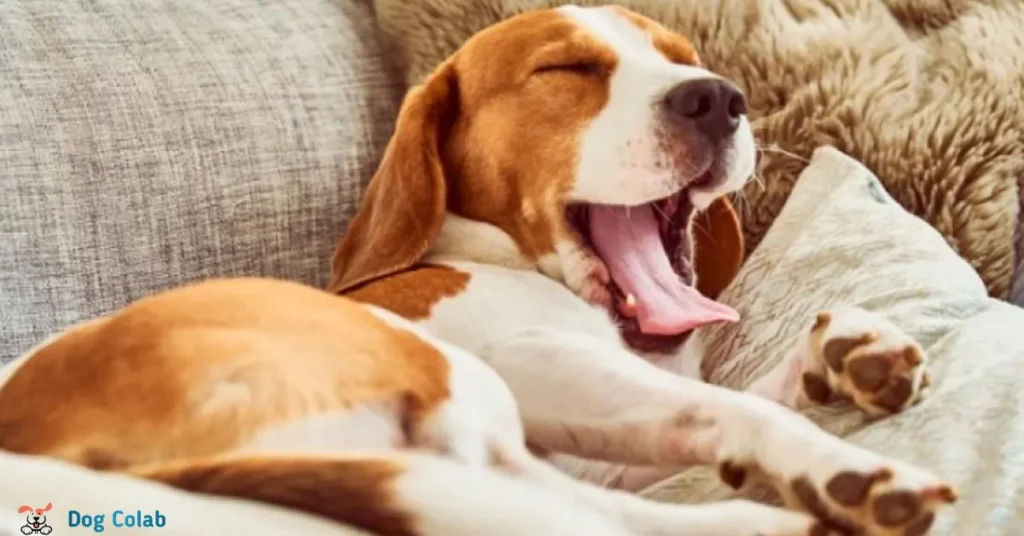
5. Confused
Dogs yawn if they are feeling confused or uncertain about a particular situation. When they are being petted, they might not fully understand what is happening or what is expected of them. Yawning can be a way for dogs to express their confusion or seek clarification.
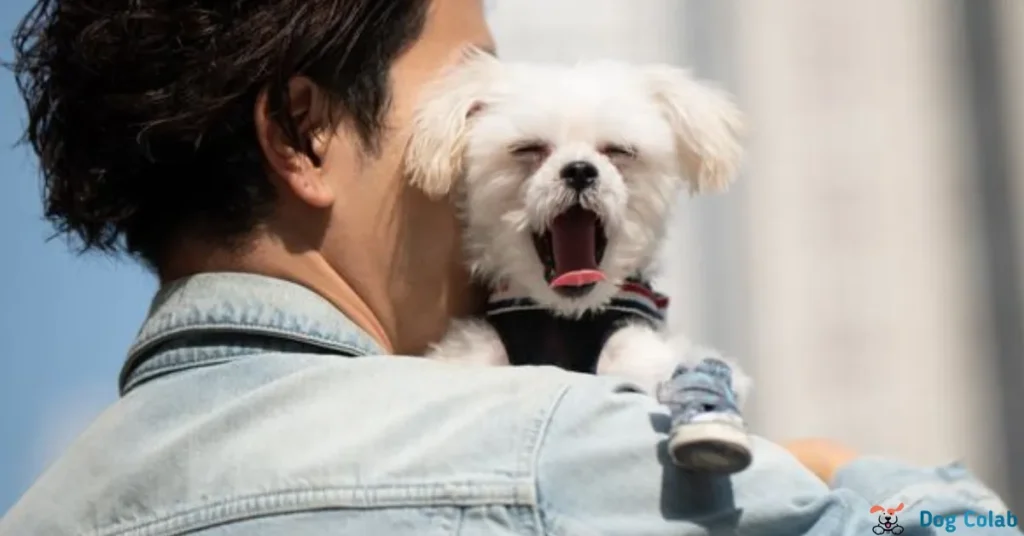
6. Contagious
Dogs, like humans, can exhibit contagious yawning. When we yawn, it can trigger a yawning response in others, including dogs. Therefore, if you yawn while petting your dog, they may yawn in response due to the contagious nature of yawning.
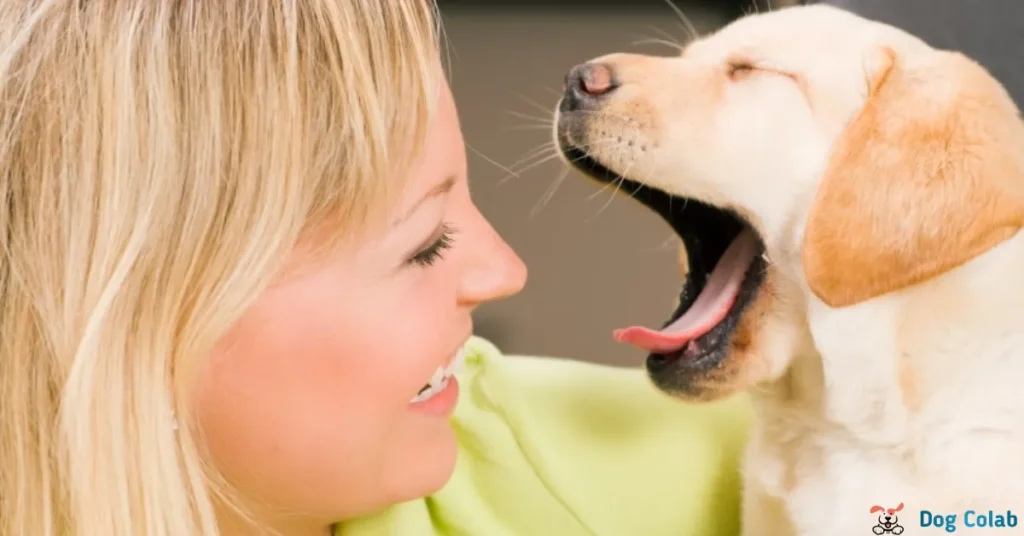
7. Medical Condition
In some cases, excessive yawning when being petted could be a sign of an underlying medical issue. Certain medical conditions, such as respiratory problems, dental pain, or neurological disorders, can cause dogs to yawn more frequently than usual. If you notice your dog yawning excessively or if it is accompanied by other concerning symptoms, it is important to consult a veterinarian to rule out any potential health problems.
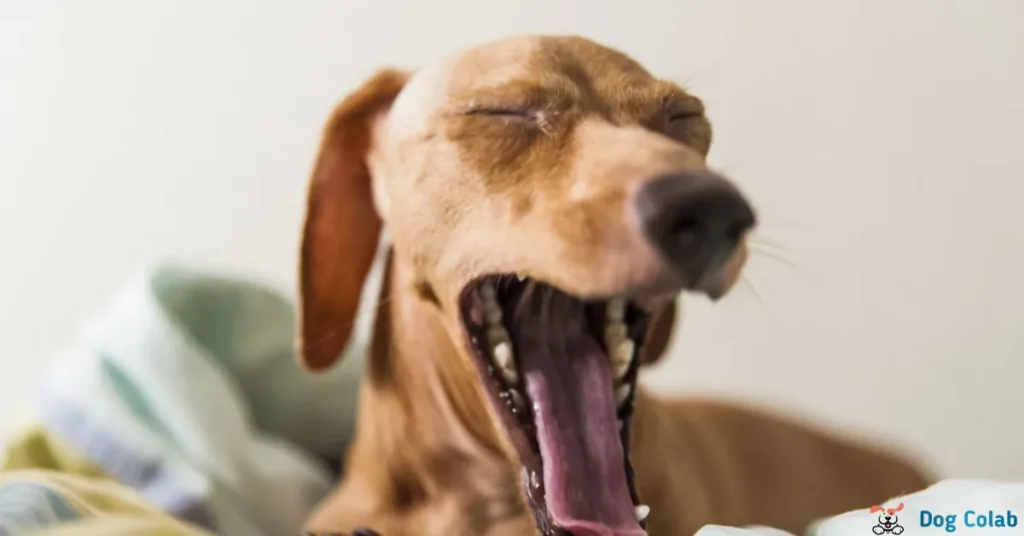
Why Does My Dog Yawn So Much When I Pet Him?
Excessive yawning in dogs can indicate underlying emotional or physiological issues. While yawning is a natural response, but the consistent and excessive yawning, coupled with signs of stress like a tucked tail or cowering, may suggest anxiety. As dog owners, we need to be aware of these signs and provide our dogs with comfort and support. However, excessive yawning can be an indication that there is an underlying medical problem, such as pain, dental issues, respiratory problems, or thyroid problems. In such cases, it is recommended to seek veterinary advice to address any discomfort or medical conditions your dog may be experiencing, Your veterinarian can provide a proper diagnosis and guide you on the necessary steps to ensure your dog’s well-being.
WATCH- This video has more great information about dog yawning.
What Are The Signs Of Yawning Indicates The Stress?
A dog’s excessive yawning can be a sign of stress, especially if it occurs at strange times or in frustrating situations. In order to calm down, dogs yawn excessively to calm themselves down.
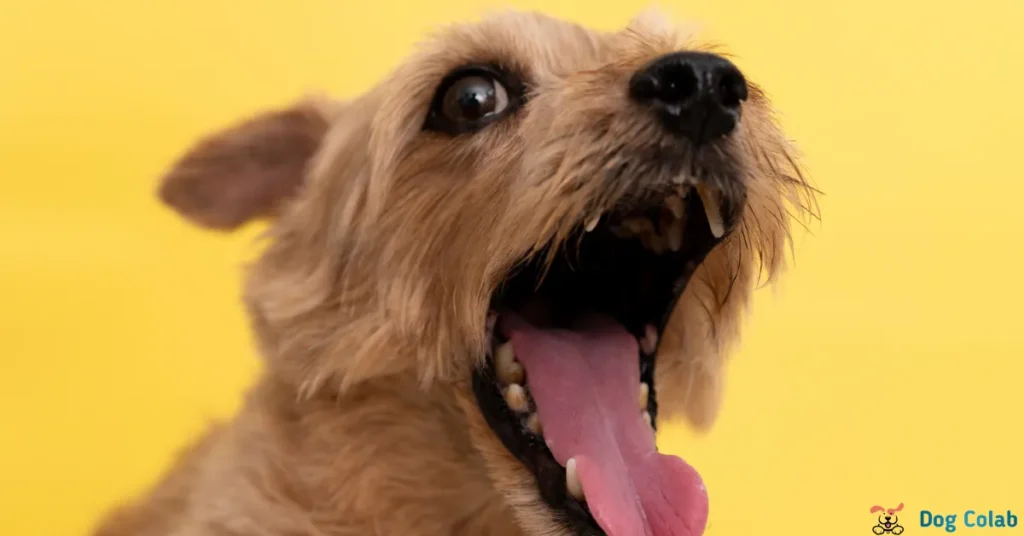
The dog may be relieved of yawning if its stressful environment is removed and it is kept safe and comfortable. It is important to observe the dog’s body language and behavior and consult a professional for a proper diagnosis if the dog continuously yawns.
You may also be interested in:- what does it mean when your dog rubs against you.
Should You Worry About That Dog Yawning So Much?
In general, occasional yawning in dogs is not a cause for concern, especially when it happens during moments of relaxation or contentment. However, if your dog yawns excessively or frequently, it could indicate underlying stress or anxiety. It’s important to pay attention to other signs of distress or discomfort, such as restlessness, panting, or changes in behavior.
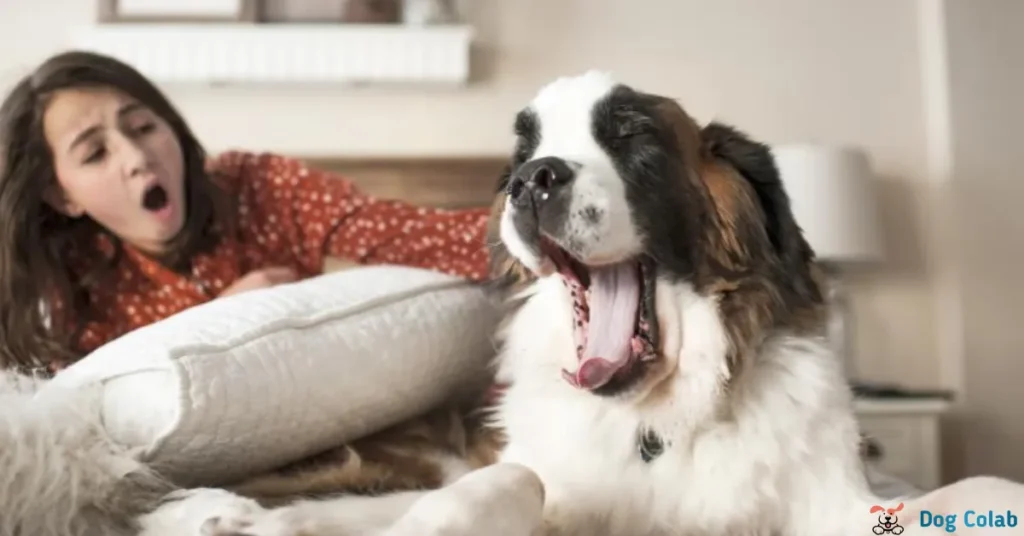
If you notice these symptoms then you must consult a veterinarian. They can provide a thorough examination and offer appropriate guidance to address any potential issues and ensure your furry friend’s health and happiness.
You might like to read this post about Why do dogs like scratches.
How to Stop Your Dog from Yawning When You Pet Him?
Yawning is a natural behavior in dogs and can have various meanings, such as tiredness, stress, or even relaxation. While it’s impossible to completely prevent your dog from yawning when you pet him, you can do a few things to minimize the occurrence.
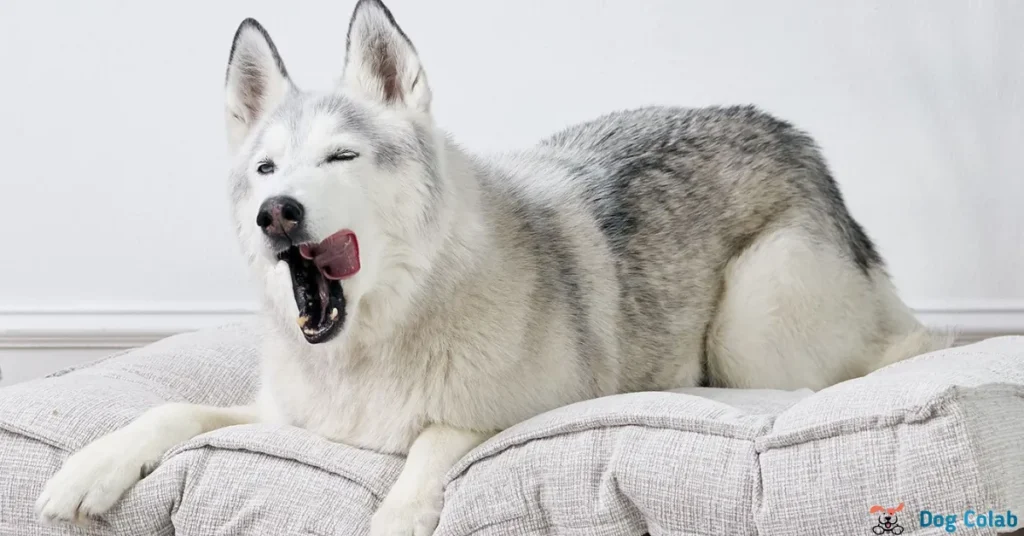
Firstly, ensure that your dog is well-rested and not overly fatigued before petting sessions. A tired dog is more likely to yawn. Additionally, create a calm and relaxed environment during petting by avoiding loud noises or sudden movements that might startle your dog.
Next, pay attention to your dog’s body language. Yawning can be a sign of stress or discomfort, so if your dog repeatedly yawns when you pet him, it could indicate that he’s not enjoying the interaction. In such cases, give your dog space and try different forms of positive reinforcement, such as treats or toys, to build a positive association with petting.
Lastly, consult with a professional dog trainer, behaviorist, or vet if your dog’s yawning is excessive, persistent, or accompanied by other signs of distress. They can provide personalized guidance and help address any underlying issues contributing to your dog’s behavior.
Conclusion “Why Do Dogs Yawn When You Pet Them”
Yawning is a normal behavior for both humans and animals but the reasons are a little different in the case of dogs yawning that we have discussed in this article. If your dog yawns excessively or frequently then you must consult a vet that helps address any underlying issues.
Overall, If your dog has normal behavior and feels good then you don’t need to worry about it. So, I hope after reading this article you have completely understood why do dogs yawn a lot or when you pet them.
NOTE:- You can find more information by clicking this link.
FAQs
1. Why do dogs yawn when you cuddle them?
Dogs yawn when cuddled as a way to relieve stress or anxiety. It can also be a sign of contentment and relaxation in response to the comforting experience.
2. Why does my dog fake yawn so much?
Dogs often fake yawns as a way to communicate their anxiety or discomfort. It can be a sign of stress or a way to diffuse tension in a social situation.
3. Why does my dog yawn when I touch him?
Yawning can be a sign of stress or anxiety in dogs. Your dog yawns when you touch him if he feels uncomfortable or uncertain about the interaction.
4. Why do dogs yawn when happy?
Dogs yawn when happy as a way to communicate their contentment and relaxation. It is a social signal that helps them to bond with their human and canine companions.
5. Why does my dog yawn when I give him kisses?
Your dog may yawn when you give him kisses as a sign of stress or appeasement. It could be a way to calm himself in an uncomfortable situation.
